VCPMC blocks revolutionary music videos , abuses rights, and exploits copyright?
In April, just before the 50th anniversary of the Liberation of the South, a series of revolutionary music videos posted on YouTube were suddenly blocked, causing a stir in public opinion and sparking fierce debate among the parties involved.
Among them are many familiar songs, imbued with cultural and historical values such as: Forgetting oneself for the people (author Doan Quang Khai), Unification song (Vo Van Di), Day and Night march (Phan Huynh Dieu and Bui Cong Minh) and National Defense Army (author Phan Huynh Dieu) in the album Soldier's song Vol2 .
These videos are all produced by the Youth Film Studio Center and managed and released on digital platforms by BH Media.
On May 27, BH Media company had a discussion with press agencies related to the incident.

Video "National Guard" blocked (Photo: Provided by BH Media).
BH Media said that VCPMC had obstructed the dissemination (blocked) of the above revolutionary musical works, in order to require the video owners to pay additional royalties.
BH Media believes that this action of VCPMC is "abuse of rights", "copyright exploitation" and the company completely disagrees.
Because according to BH Media, YouTube has already paid royalties for Tre Film Studio's music videos.
Specifically, BH Media said that they have evidence showing that on YouTube's content management system, the information is clearly displayed: VCPM-CS (ie VCPMC) has attached rights to the work Doan Ve Quoc Quan and received 100% of the "Performance" (PR - Performance Right) and 100% of the "Reproduction" (MR - Mechanical Right) rights. That is, VCPMC will receive royalties paid by YouTube.
“On the one hand, VCPMC quietly collects the royalties that YouTube has paid, on the other hand, VCPMC abuses the power of copyright processing tools provided by YouTube to “block” and “takedown” videos, forcing music producers and content creators to pay additional royalties.
VCPMC's "blocking" of videos to pressure them to collect multiple times more royalties has put additional burdens on music producers and publishers. If they pay royalties to VCPMC, the fee is usually only a licensing fee for one year of use. In the following years, they may have to continue to pay renewal fees to VCPMC," said Mr. Nguyen Hai Binh - General Director of BH Media.
BH Media representative said that VCPMC's current licensing model is different from international practice, in which copyright representative organizations such as PRS for Music (UK), GEMA (Germany), ASCAP (USA)... after signing an agreement with YouTube will not block or require additional payment outside the system.
The current method of collecting fees is pushing up production costs, causing publishers to lose interest in using works under the management of VCPMC. In the long run, this will affect the authors who have authorized the center.
In addition, BH Media believes that the act of "blocking" videos not only creates financial pressure but also affects the public's access to historical andeducational works.
"The fact that VCPMC goes around calling on individuals to demand more copyright fees is not only against YouTube's platform regulations but also against Vietnamese law.
According to Point a, Clause 3, Article 20 of the Law on Intellectual Property, copyright owners do not have the right to prohibit organizations and individuals from copying works only to exercise other rights as prescribed by this Law.
For example, copying a video and posting it on YouTube is only for the purpose of broadcasting the video (conveying the work) for the audience to watch on YouTube," said a BH Media representative.
Mr. Nguyen Hai Binh also emphasized: “The relationship between authors and producers and distributors is a symbiotic relationship”. Because without producers and distributors, musical works will not reach the public, nor will they be able to generate copyright revenue.
We always respect copyright, however, copyright protection on YouTube in Vietnam needs to be transparent and comply with the platform's policies as well as international practices."
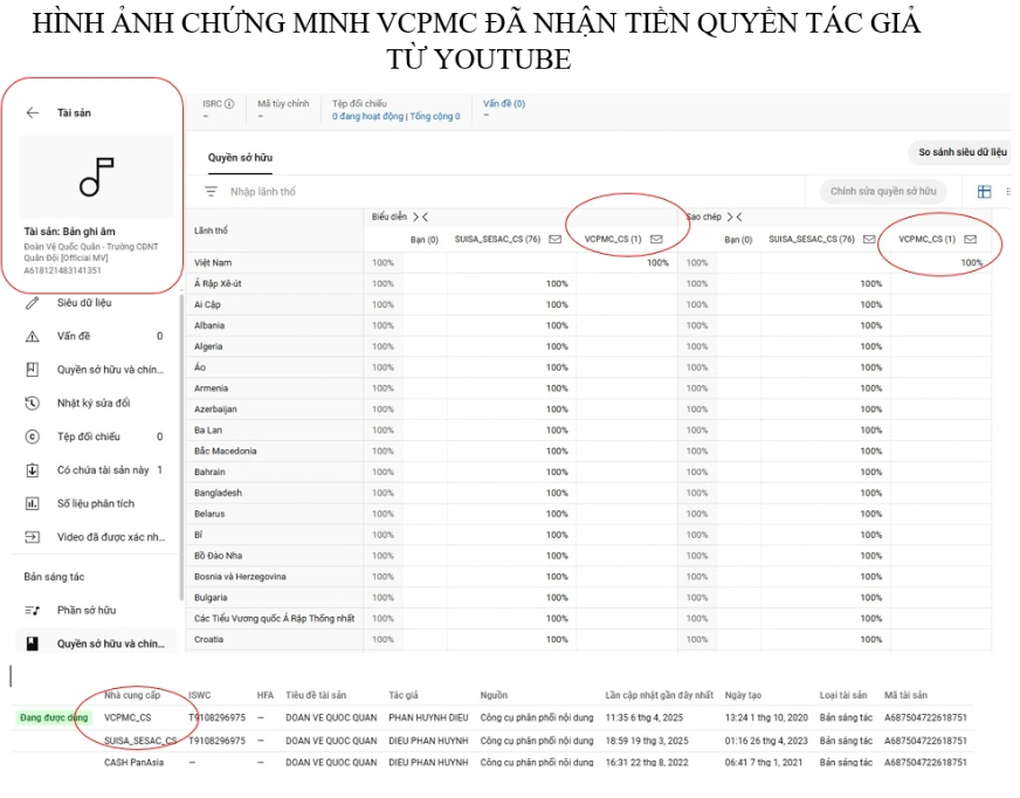
Evidence provided by BHMedia (Photo: Provided by BH Media).
VCPMC response
Regarding the information provided by BH Media, VCPMC sent a response to Dan Tri reporter that BH Media is misunderstanding when it thinks that YouTube has directly paid full copyright fees to VCPMC.
According to VCPMC, the fact that YouTube's content management system (CMS) displays performance rights (PR) and reproduction rights (MR) does not mean that this unit is exempt from legal obligations.
In essence, this is only technical information, reflecting the division of content revenue on the platform, and cannot be considered legal evidence for exemption from payment of other rights.
VCPMC explained that YouTube, as a distribution platform, has established an automatic revenue sharing mechanism for rights such as PR and MR, in order to fulfill the obligation to pay for copyright use for works broadcast on the platform.
However, this does not include “sync rights” – the rights required to make a sound recording, video recording or digital copy for the purpose of posting to YouTube.
According to this unit, this is the sole responsibility of video producers and uploaders - that is, organizations and individuals who directly exploit music content for business purposes and benefit from the platform.
VCPMC also cited the Vietnamese Intellectual Property Law to affirm that copying works for the purpose of posting on digital platforms does not fall under the group of exempted acts of "copying to exercise other rights", but rather requires permission and payment of copyright fees as prescribed in Clause 2, Article 20.
On that basis, VCPMC affirms that they have full representative rights to license use and request copyright obligations for music videos professionally produced by media companies, including BH Media.
Individuals or businesses that use musical works for commercial exploitation purposes on YouTube, whether directly or indirectly to make money from the platform, must fulfill obligations related to copyright.
This unit also refuted BH Media's citation of international organizations such as ICE or Songtrust as a reference, saying that this comparison is inaccurate.
According to VCPMC, they are a copyright representative organization in Vietnam, fully authorized and legally, with a scope of operation and mechanism completely different from foreign organizations that only focus on a few types of property rights.
Notably, VCPMC said it has filed two lawsuits against BH Media in court. One lawsuit seeks compensation for copyright infringement of 27 works belonging to members of the center.
The second lawsuit is related to BH Media's statements that are considered untrue, negatively affecting the organization's reputation and image, and requires correction and public apology.
As for BH Media, this unit responded that up to now they have not received official notice from the court about the two above lawsuits.
However, if the case is accepted, BH Media said it is ready to pursue it to the end to clarify the issue. A representative of BH Media said the company will send a document to the authorities to reflect on the issue of unreasonable copyright fees collected by VCPMC.
Right to copy works on YouTube platform: According to the law, authors and copyright owners have the exclusive right to perform or allow others to perform the right to copy their works, and have the right to control the exploitation and use of their works, including the creation of digital copies of their works.
The act of organizations and individuals using the right to copy a work to shape and/or create audio, video recordings or digital copies of the work for commercial purposes instead of physically copying it as before, is considered an act of using the right to copy a work (copying for synchronization).
Production and content providers use the right to copy works to create audio and video recordings for posting and distribution on online platforms and social networks.
Through these platforms, the public and music listeners can access musical works and music products, thereby generating revenue and profits for the platforms; at the same time, content providers/uploaders/channel owners also benefit according to the platform's benefit sharing mechanism.
Regarding the user's obligations: Pursuant to Clause 2, Article 20 of the Law on Intellectual Property, the subject performing the act of copying a work to shape and/or create audio, video/video recordings to post and release on online platforms for the purpose of commercial exploitation is obliged to ask for permission to use and pay royalties to the copyright owner.
The collective copyright representative organization, based on the author's authorization and the forms of use of the copying right that the user unit performs, conducts agreements, negotiations, licenses and collects royalties for this use.
Clause 2, Article 20 of the Law on Intellectual Property
To be considered "copying solely for the purpose of exercising another right" under the regulations, the copying must satisfy two conditions:
(i) the purpose of copying is to exercise another right - is a necessary and mandatory condition; (ii) at the same time, the copying subject must be the person exercising that "other right".
Compared to online copying, in the case of online copying for commercial exploitation on platforms such as YouTube or Facebook, there are two separate legal entities involved with two separate acts of use, which are:
- The "Poster" exercises the right of copying to create a digital copy stored on the platform.
- "Online platform" uses the right to communicate and provide works to the public through its technical means.
Source: https://dantri.com.vn/giai-tri/dien-bien-moi-tranh-cai-thu-tien-tac-quyen-ca-khuc-cach-mang-tren-youtube-20250528131619204.htm




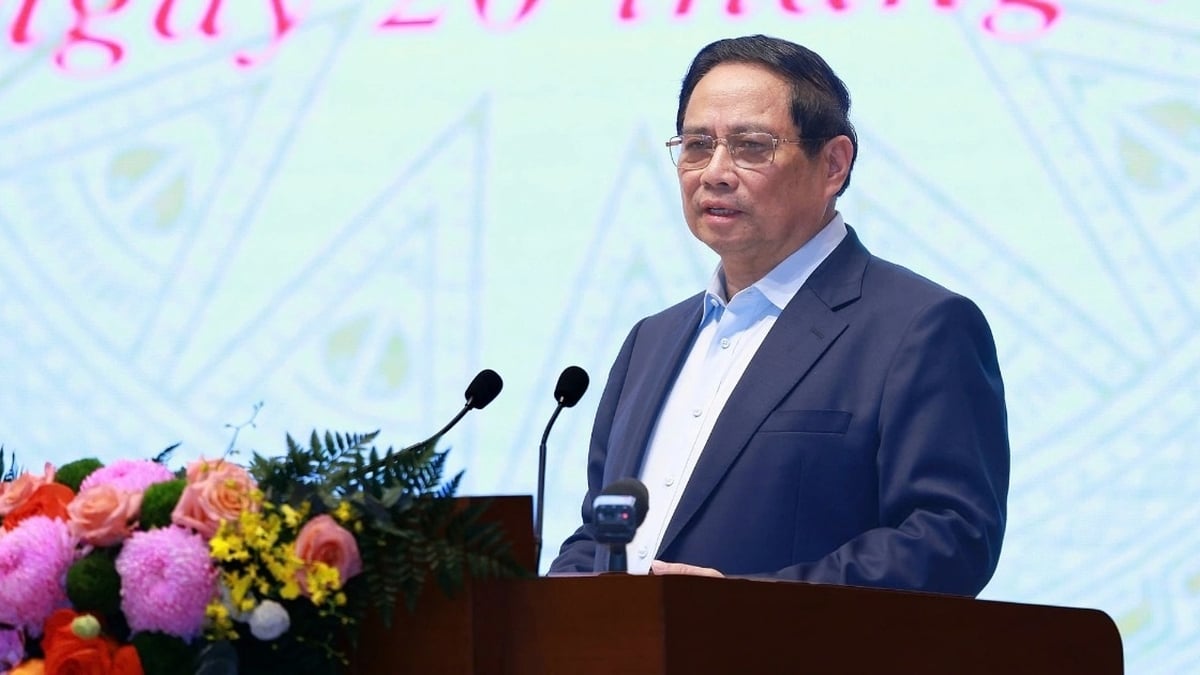
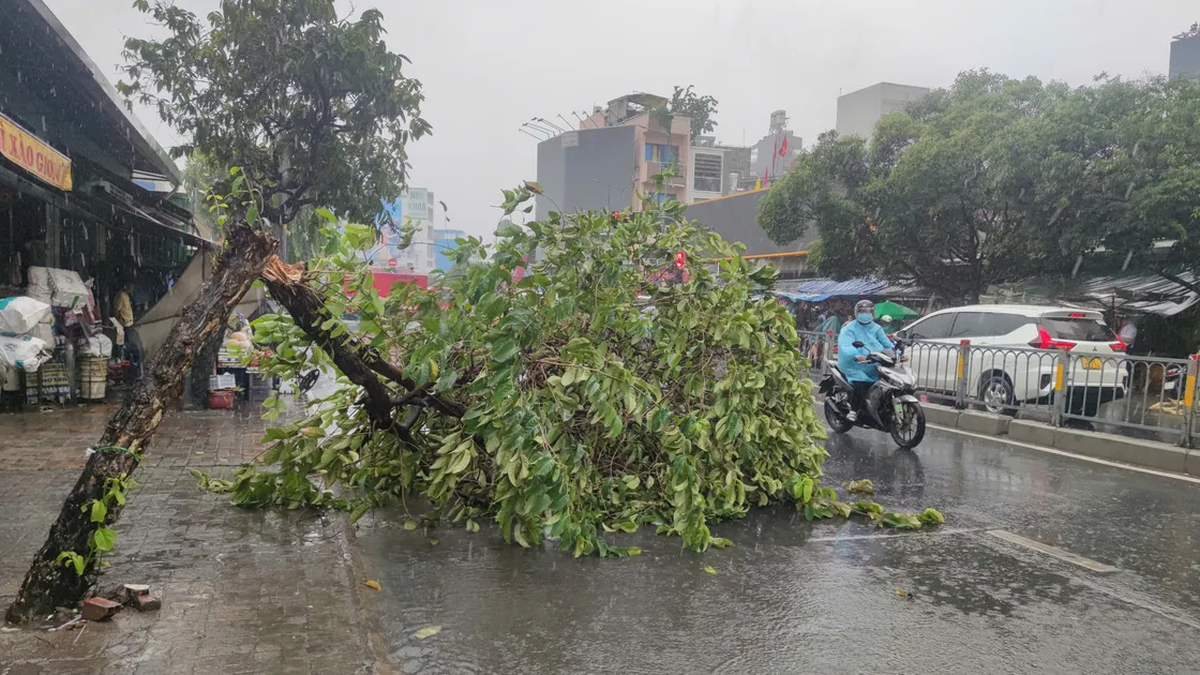
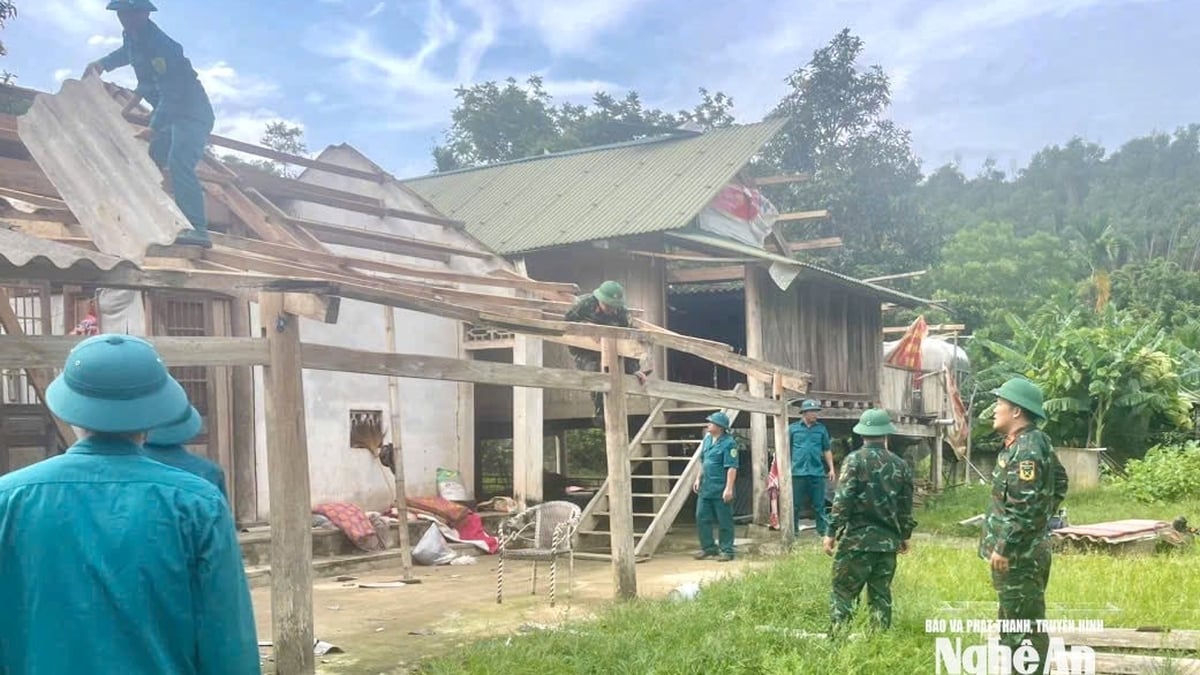
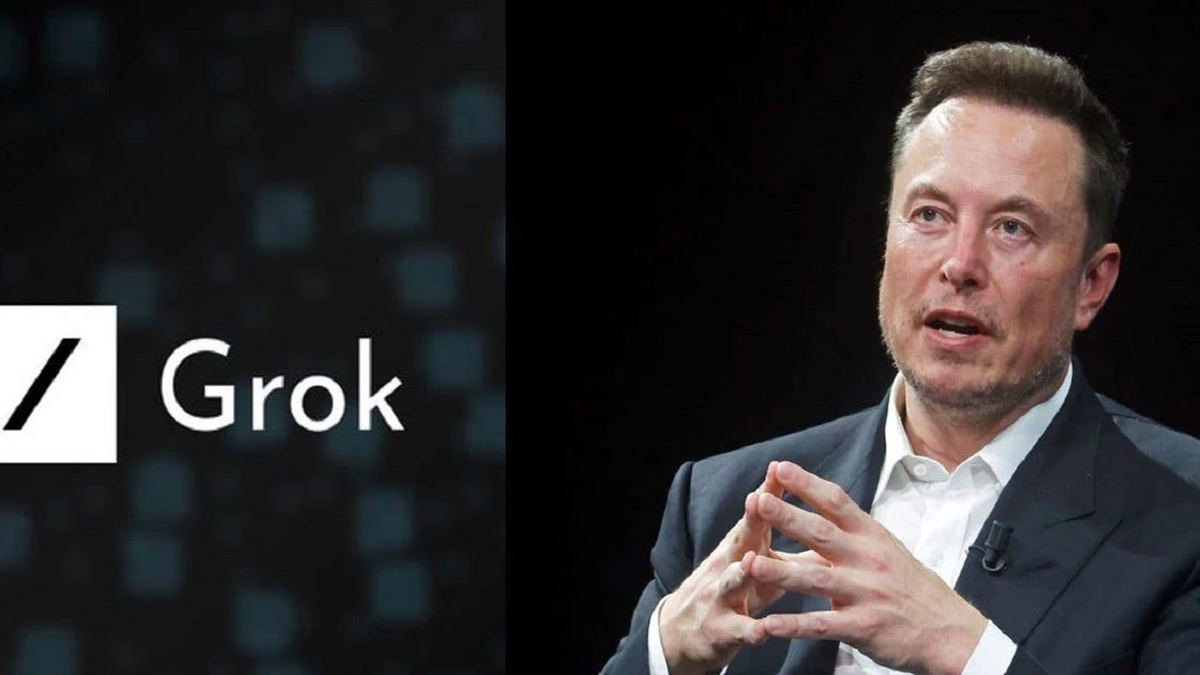

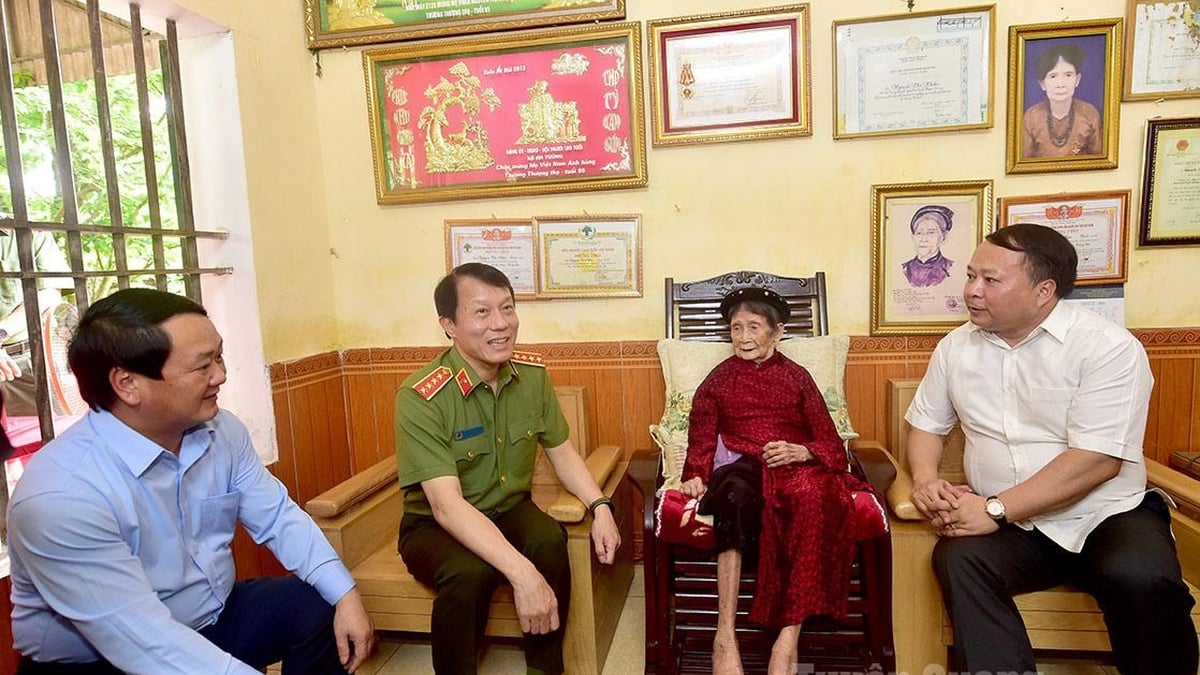

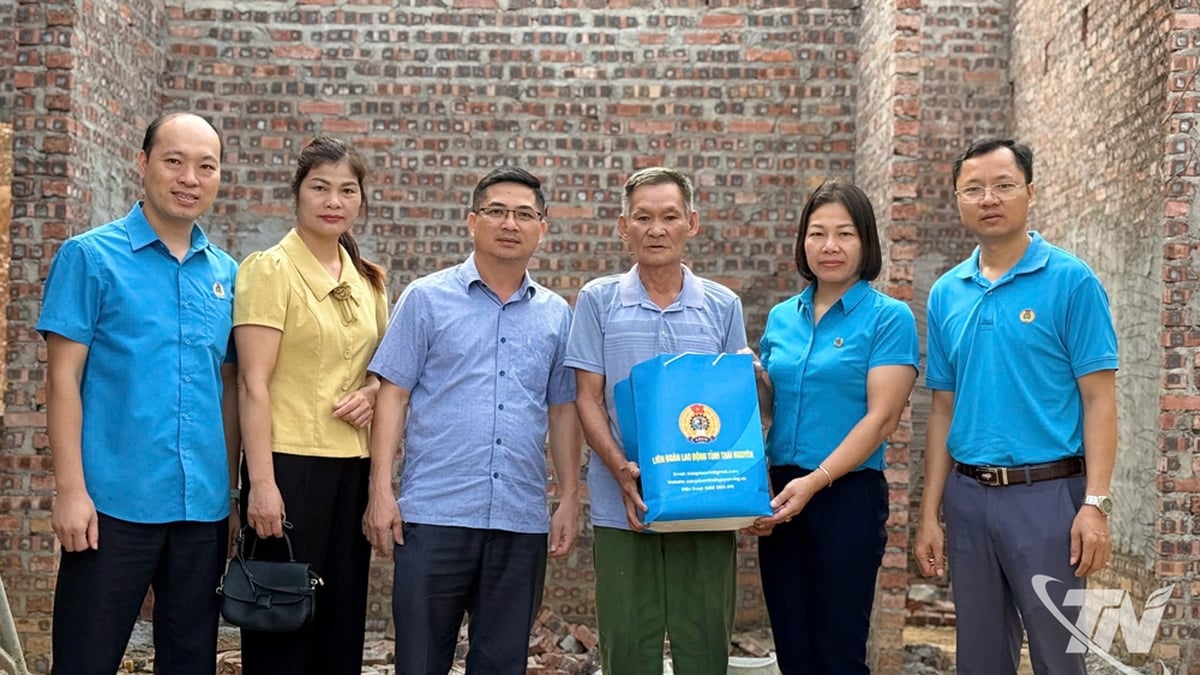












![[Photo] National Assembly Chairman Tran Thanh Man visits Vietnamese Heroic Mother Ta Thi Tran](https://vphoto.vietnam.vn/thumb/1200x675/vietnam/resource/IMAGE/2025/7/20/765c0bd057dd44ad83ab89fe0255b783)










































































Comment (0)